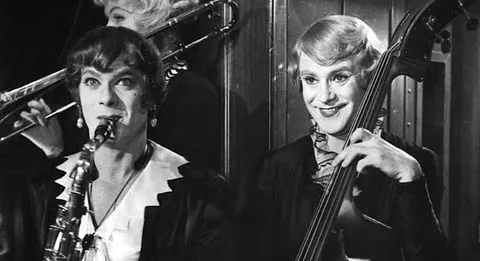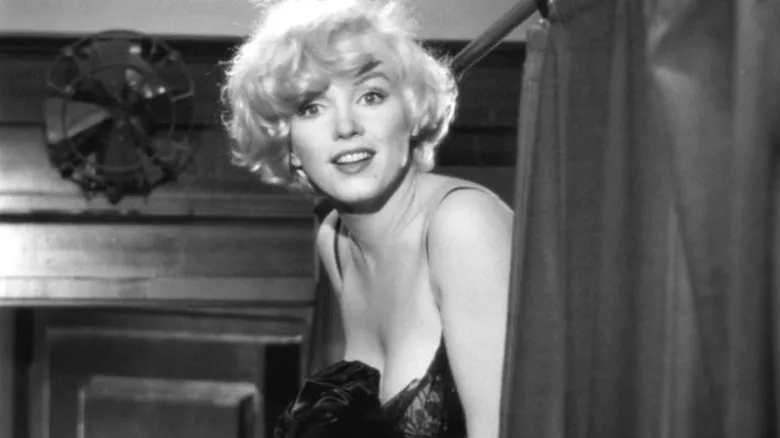In 1959, Billy Wilder’s film “Some Like It Hot” pushed the boundaries of comedy by featuring two men, Tony Curtis and Jack Lemmon, dressing up as women. The film’s success was largely due to the guidance of Vander Clyde Broadway, known as Barbette, a renowned drag performer who taught the actors how to convincingly pass as women. Barbette’s expertise was crucial in making the film’s premise believable, as the movie revolved around two musicians who flee their lives by joining an all-female band and disguising themselves as women.
Born in 1899 in Texas, Barbette started his career as a trapeze artist and high-wire walker, performing in full drag under the name Barbette. He became an instant hit, earning accolades from French royalty and even being cast in Jean Cocteau’s 1930 film “The Blood of a Poet”. Barbette’s drag performances were so convincing that he was often unable to reveal his true identity until the end of his acts, leaving audiences stunned.
When he was brought on board for “Some Like It Hot”, Barbette worked closely with Curtis and Lemmon, teaching them essential drag techniques, such as walking and sitting in a manner that accentuated the movement of their hips. Although he later walked off the set due to Lemmon’s resistance to his guidance, the time that he spent with the actors paid off. Curtis recalled using Barbette’s body language tutorials when testing their feminine looks for the first time in the women’s restroom on the studio lot, and to their surprise, none of the women in the restroom noticed anything out of the ordinary.

A Still From Billy Wilder’s film Some Like It Ho (Photo: Some Like It Ho)
The film’s success can be attributed, in no small part, to Barbette’s work with the leads. “Some Like It Hot” went on to become a massive hit, earning widespread critical acclaim and multiple Oscar nominations. Unfortunately, Barbette’s personal life was marked by struggles with illness and job-related injuries, and he took his own life in 1973.
Despite his untimely death, Barbette’s legacy lives on in films like “Some Like It Hot”, which provides a unique opportunity to experience the groundbreaking blend of comedy, romance, and drag. It is crucial that we remember Barbette and other drag icons who have contributed to the development of drag culture and its representation in film. Their stories, though often overlooked, are essential in understanding the evolution of drag and its impact on popular culture.
























